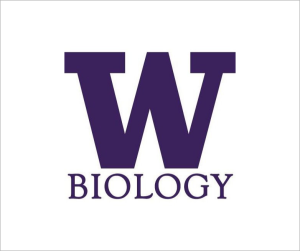Introducing our first-year grad students! Read on to learn about some of the students in our 2016 cohort. Congrats to the first years on making it through your first quarter in the program.
Olivia Kosterlitz is broadly interested in evolutionary genetics and genomics, and how genomes change in a population over time in relation to adaptations. Olivia’s previous work in the Clark Lab at the University of Utah consisted of several projects on Tetranychus urticae (two-spotted spider mites) focusing on a complex phenotype. She is now currently rotating through labs in UW biology. During the Autumn quarter rotation, she worked in the Amemiya Lab on programmed genome rearrangements in a basal vertebrate, lamprey. Olivia is now rotating through the Promislow Lab focusing on mating behaviors in Drosophila melanogaster. Olivia chose UW biology for the collaborative research environment and their focus on teaching education.
Stuart Graham: After completing my Master’s degree in Sweden, I came to UW with the aim of learning how to effectively utilize evolutionary theory to inform conservation management. I am particularly interested in understanding how species interactions will respond to climate change, and I believe such knowledge to be of vital importance for ensuring the continued functioning of communities and ecosystems. I joined the Buckley lab where I am currently using a long-term dataset to investigate how climate change has influenced the developmental rates of sympatric grasshopper species living in the Rocky Mountains of Colorado. My favorite thing about UW Biology is the community of graduate students who speak so passionately about their research projects and provide inspiration for us first-years.
I’m Tony Cannistra, a brand-new member of the Buckley Lab. I got my B.S. in Computer Science and Biology at Tufts University in 2015, where my research focused on computational methods for protein function prediction. For grad school I’ve switched tacks to my real passion: ecology. I’m interested in applying some of my knowledge of computation to difficult ecological prediction problems, like trying to figure out where certain species (or whole ecosystems) will end up in the face of climate change, and how physiology can inform those predictions. I spent the year and a half between college and graduate school as a Naturalist in Aspen, Colorado, and in my free time you can probably find me running, backcountry skiing, or staring in awe at the Pacific Northwest’s enormous trees.
Romi Ramos: I completed my undergraduate research in Genetics and Plant Biology at UC Berkeley, where I worked in Koehl, Specht, and Wildermuth Lab. Today, I am rotating in Queitsch, Imaizumi, and Nemhauser Lab (currently in Imaizumi’s lab), where I hope to gain insights on the molecular underpinnings behind the way plants respond to their environment. I chose UW Biology because of the flexibility its interdisciplinary research labs provide, and its emphasis on teaching. Everywhere I look I see influential scientists exploring topics that motivate me. I am excited for every opportunity I have to collaborate with them.

